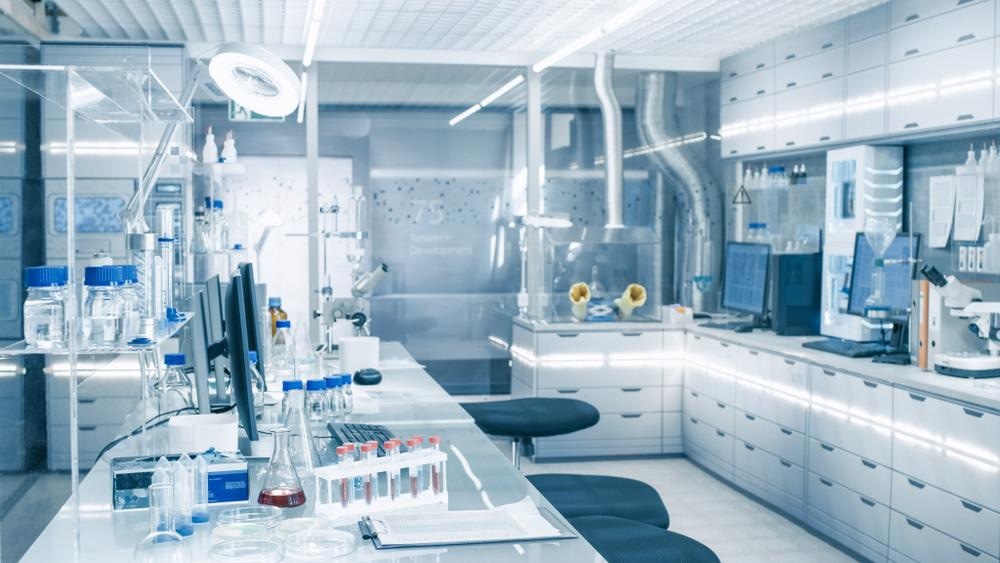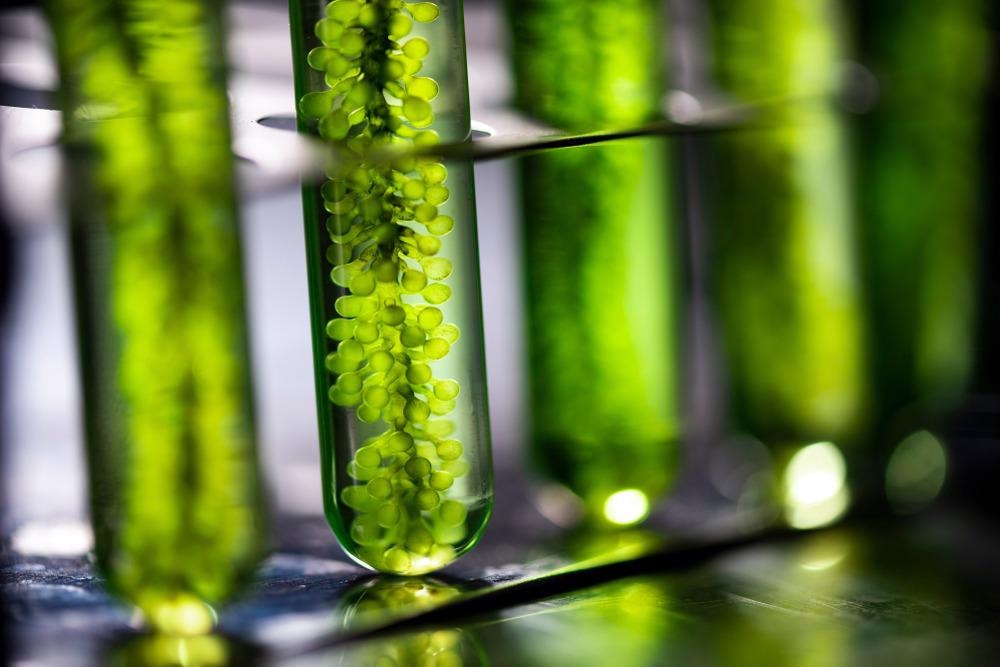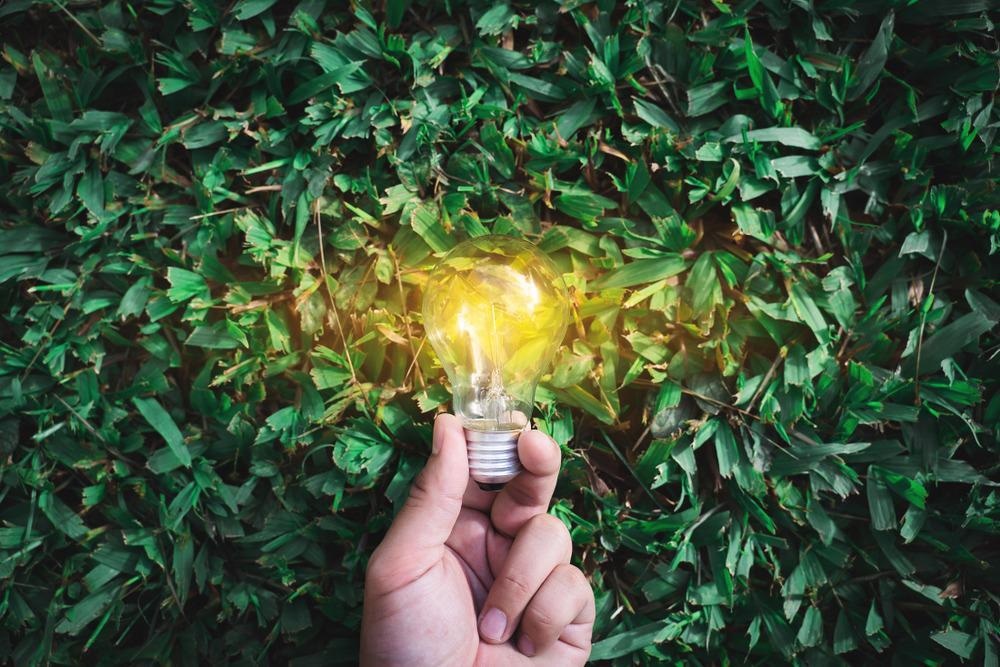In this interview, we speak to James Connelly, Chief Executive Officer of My Green Lab, about sustainability within the life sciences and its importance in an ever-changing world.
Please could you introduce yourself and tell us about your role at My Green Lab?
My name is James Connelly, and I am the Chief Executive Officer of My Green Lab. I am responsible for leading the vision for the organization and the development and execution of My Green Lab’s strategic plan.
In partnership with the organization's Board of Directors, I implement the company’s mission of building the global culture of sustainability in science. I also lead the My Green Lab staff and empower them to fulfill their roles in accordance with the company’s culture and values.
My Green Lab is focused on improving the sustainability of scientific research. How important is improving sustainability in science?
The worldwide scientific research sector is vast and growing. By 2022, the global life science industry is expected to reach 1.5 trillion US dollars. The massive economic impact of the life science industry is unfortunately matched by an outsized environmental impact, which will also continue to grow if the industry does not rapidly change. There are millions of laboratories around the world, and each typically uses five to ten times more energy per square meter than office buildings. My Green Lab recently published Carbon Impact of Biotech & Pharma study that found the global biotech and pharmaceutical industry actually has more carbon emission than the semi-conductor industry and nearly half the carbon output of the United Kingdom. Further, we found that only 4% of biotech and pharma companies are currently on track to meet Paris 2030 climate goals.
Given the significant carbon impact and rapid growth of the industry, we need to make some rapid and dramatic shifts to ensure the industry is part of the solution to climate change.
Laboratories have a considerable amount of waste and use up to five times more energy than other workplaces of similar size. What do you believe to be some of the biggest determinants surrounding unsustainability in laboratories and science?
Scientists like all of us are creatures of habit. We tend to do things the way that they are taught and how they always have been done. This leads to a few misconceptions about sustainability that make it difficult to drive sustainable change in the industry. Often there is a belief that sustainable changes will damage the progress of the science itself or impact safety. However, My Green Lab’s program offers a flexible process that helps reduce environmental harm through a suite of best practices that do not impact the research.
In fact, the interventions we recommend can reduce health by decreasing exposure to toxic chemicals through leveraging green chemistry. There is a great deal of positive impact that every scientist at the lab bench can have through modifying simple behaviors, like remembering to close a fume hood. Greater changes can happen at a systemic level when scientists begin demanding sustainable innovations from their suppliers and changing their institutional policies on issues like waste management and equipment sharing.

Image Credit: Gorodenkoff/Shutterstock.com
How is My Green Lab creating a culture of sustainability in laboratories?
My Green Lab offers a suite of leading-edge programs to engage everyone from students and researchers to laboratories, major institutions, and corporations to fundamentally and permanently improve the environmental performance of scientific research. My Green Lab’s flagship program, My Green Lab Certification, accomplishes this goal through an innovative survey and continuous improvement process.
By introducing a new perspective and proven best practices within a carefully crafted framework, My Green Lab has inspired tens of thousands of scientists and lab professionals to make a positive change in their labs by reducing the environmental impact of their work. Through this process, my green lab helps drive lasting change by encouraging a culture of sustainability in science.
You have a lot of ongoing programs including ACT, the freezer challenge, and CEEL. Can you describe some of these programs and how they work at improving sustainability practices?
My Green Lab’s programs taken together are a self-reinforcing interconnected ecosystem that works together at both ends of the market from labs to supply chains to transform the Science industry.
The ACT Environmental Impact Factor (EIF) Label is the premier eco-nutrition label for laboratory products. It is designed to address the need of both scientists and procurement specialists for clear, third-party verified information about the environmental impact of laboratory products. The ACT label process entails third-party verification of the sustainable impacts of a product, its operations, and its end of life.
The International Laboratory Freezer Challenge is a free, annual cold storage competition for laboratories run by My Green Lab and the International Institute for Sustainable Laboratories (I2SL). It promotes sample accessibility, sample integrity, reduced costs, and energy efficiency by harnessing a spirit of competition within and between laboratories. The participants use well-evidenced criteria and best practices that support science quality and resilience while minimizing total costs and environmental impacts of sample storage.
The Center for Energy Efficient Laboratories (CEEL) works closely with scientists, laboratory equipment manufacturers, facility managers, and utility companies to identify opportunities for energy efficiency in laboratories. This work has led to the first comprehensive study on plug loads in labs, the first ENERGY STAR rating for ULT freezers, and the first utility rebates and incentives for laboratory equipment. We are currently working on a project in partnership with the National Renewable Energy Laboratory to develop energy and water testing standards for autoclaves, one of the largest energy and water consumers in laboratories.
What benefits does sustainable science have for both the planet and the laboratory itself?
Green Labs deliver great value for both the planet and the research environment. Firstly, Green Labs ensure a healthy, safe, and fun environment for your employees— while increasing employee engagement. Green labs are also efficient labs. By implementing best practices decreases operational costs by reducing waste and preventing unnecessary energy and water use.
My Green Lab programs also ensure you are aligning your labs with corporate or institutional sustainability goals and strategies. Essentially they ensure you’re walking the talk of your higher-level sustainability goals at the lab bench. Lastly, Green labs attract (and retain) highly qualified personnel who are increasingly seeking out organizations that share their values.

Image Credit: Chokniti Khongchum/Shutterstock.com
What top tips would you have for scientists wanting to improve their practices and become more sustainable?
We believe that sustainability begins with an awareness of the impact of our actions. Everyone in the lab community—from scientists to the people who support or work with laboratories at organizations large and small—can make a difference from both their individual actions and their ability to influence their organizations.
There are various ways laboratories can improve their operations, increase inventory management reliability, reduce costs, and help ensure their experiments’ reproducibility. Conducting regular waste audits, managing a shared chemical inventory, regularly defrosting lab freezers, and practicing Green Chemistry to select less hazardous chemicals are just a handful of ways. We have compiled several articles on our blog, The Beaker, which provide practical, easy-to-implement tips to become more sustainable in labs.
Another way to become more sustainable in the lab through education is to become a My Green Lab Accredited Professional (AP). The Green Lab AP program — the first credential of its kind — is developed to offer scientists and others who work with labs with the necessary knowledge base and tools to bring sustainability into their labs or organizations. The program focuses on the critical concepts in lab sustainability, with an emphasis on practical tools and takeaways.
Do you believe that as more laboratories recognize the impact they are having on the planet, they will begin to adopt more sustainable practices?
Absolutely. We find as soon as scientists are aware of and understand their environmental impact, they want to make a change. Often, they don’t know where to start or have some preconceived notions that sustainability is too hard or will hurt their science. That is where our programs come in. They provide a clear proven frameworks to educate and empower people to make the necessary sustainable changes in their work and the operations of their labs.
What does the future of sustainable science look like for you?
In the next ten years in which we envision a complete transformation in the scientific community, so that:
- Every individual in science is fluent in sustainability and understands how they can make a difference through their work and actions
- Every lab is green, and every laboratory product is designed to minimize environmental impact through a transparent supply chain
- A thriving culture of sustainability exists at every leading organization in science
- The science industry leads the world on sustainability
Our ultimate vision is to ensure a world where all science is conducted in a way that benefits the health and well-being of people and our planet.

Image Credit: one photo/Shutterstock.com
How can people get involved and support My Green Lab?
One of the first steps to get involved in signing up for our free My Green Lab Ambassador program. The My Green Lab Ambassador training program consists of four Smart Science training videos that cover the main topics of lab sustainability: Energy, Waste, Water, and Green Chemistry & Community. Furthermore, the Ambassador Program provides the ability to network, learn, and discuss laboratory sustainability with other Ambassadors as well as My Green Lab staff, through a dedicated community channel and organized virtual discussions. Another way to get involved is by signing up for our monthly newsletter, through which we communicate our ongoing initiatives and share practical advice to adopt lab sustainability best practices.
What is next for My Green Lab?
My Green Lab programs are now rapidly scaling up around the world, particularly in the European market. To meet and support this demand My Green Lab is hosting a European Summit on February 10th, 2022, online, which is free to attend. We are also working on completing the remaining modules within the My Green Lab Accredited Professional program over the next year and continue to grow our flagship programs. We currently have over 780 labs engaged with our program and that is growing exponentially.
The UN set a goal that 95% of labels in pharma and biotech achieve Green Lab Certification by 2030 and we are working with many companies and major research institutions on achieving those goals. We are confident that through collective action across the industry by 2030 green labs will be the norm rather than a few outliers.
Where can readers find more information?
My Green Lab website: www.mygreenlab.org
My Green Lab programs: My Green Lab Certification, ACT, CEEL, My Green Lab Ambassador program
Carbon Impact of Life Science & Pharma report: Link
My Green Lab Accredited Professional Program: www.mygreenlab.education
About James Connelly
One of the most influential leaders in the sustainability movement today, James Connelly is the Chief Executive Officer of My Green Lab. James is a frequent keynote speaker on regenerative design, sustainable business, and laboratory sustainability. He is an avid writer, and his research and commentary have been featured in news outlets such as China Dialogue, CGTN TV, Engineering News Record, Building Green, Trim Tab, Sustainable Brands, Lab Manager, and Technology Networks..jpg)
Before joining My Green Lab, James was the Vice President of Strategic Growth for the International Living Future Institute, where he led international growth strategy and became a founding board member of Living Future Institute Europe.
During his time at ILFI, James created several leading-edge sustainability programs, including Declare, an innovative ingredient transparency label for non-toxic building products, Living Product Challenge, the world’s most advanced sustainability standard for building products, Just, a social equity label for organizations, and Zero Carbon Building Certification. James has won numerous scholarships and awards for his research and work; notably a 2012 Fulbright Fellowship to research green building rating systems in China, Greenbiz 30 under 30 Sustainable Business Leader in 2016, Net Zero Energy Trailblazer in 2019.
About My Green Lab
My Green Lab is a non-profit environmental organization with a mission to build a global culture of sustainability in science. The organization is the world leader in developing internationally recognized sustainability standards for laboratories and laboratory products, bringing sustainability to the community responsible for the world's life-changing medical and technical innovations.
Laboratories are one of the most resource-intensive spaces in any industry, but they don't have to be. By introducing both a new perspective and proven best practices within a carefully crafted framework, My Green Lab has inspired tens of thousands of scientists to make a positive change in their labs by reducing the environmental impact of their work.